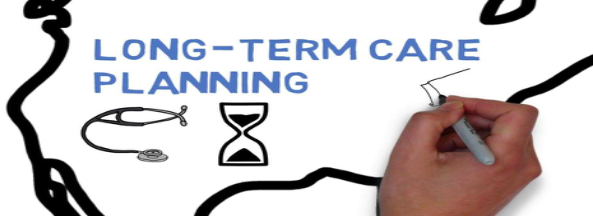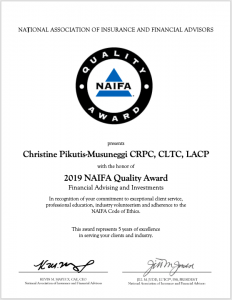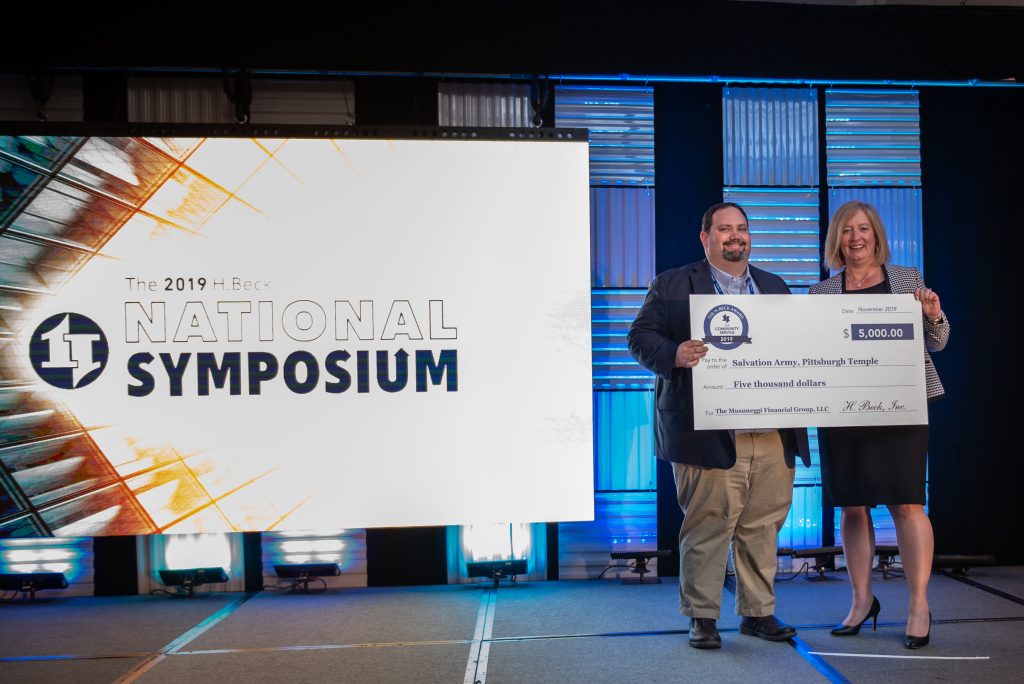
Your Extended Care Strategy
Are you prepared for the possibility – and expense – of eldercare?
Do you have an extra $33,000 to $100,000 to spare this year? How about next year, and the year after that? Your answer to these questions is probably “no.”
What could possibly cost so much? Eldercare.
According to the AARP Public Policy Institute, a year of in-home care for a senior costs roughly $33,000. A year at an assisted living facility? About $45,000. A year in a nursing home? Approximately $100,000.1
Medicare has limitations.
Generally speaking, it will pay for no more than 35 hours per week of home health care and only up to 100 days of nursing home care, following a hospitalization. It may pay for up to six months of hospice care. If you or someone you love happens to develop Alzheimer’s disease or another form of dementia, Medicare will not pay for any degree of room and board for them at an assisted living facility.2
Medicaid is another resource entirely.
For seniors who are eligible, Medicaid can pick up assisted living facility or nursing home expenses, and even in-home eldercare, in some instances. Qualifying for Medicaid is the hard part. Normally, you only qualify for it when you have spent down your assets to the point where you can no longer pay for eldercare out of pocket or with insurance.2
You need a strategy.
An extended care strategy may factor into a thoughtful retirement strategy. After all, your retirement may be lengthy, and you may need such care. The Social Security Administration projects that a quarter of today’s 65-year-olds will live past age 90, with a tenth making it to age 100.1
Insurance companies have modified extended care policies over the years. Some have chosen to bundle extended care features into other policies, which can make the product more accessible. An insurance professional familiar with industry trends may be able to provide you more information about policies and policy choices.
Waiting for federal or state lawmakers to pass a new program to help with the costs of eldercare is not much of a strategy. It is up to you, the individual, to determine how to face this potential financial challenge.2
If you lead a healthy and active life, you may need such care only at the very end. Assuming you do require it at some point, you may consider living in an area where you can join a continuing-care-at-home program (there are currently more than 30 of these, essentially operating as remote care programs of assisted living communities) or a “village network” that offers you some in-home help (not skilled nursing care, however).1
Those rare and nice options aside, retirement saving also needs to be about saving for potential extended care expenses. If insurance addressing extended care is not easy to obtain, then a Health Savings Account (HSA) might be an option. These accounts have emerged as another solution to extended care needs. An HSA is not a form of insurance, but it does provide a tax-advantaged savings account to which you (and potentially, your employer) can make contributions. You can use these funds to pay for most medical expenses, including prescription drugs, dental care, and vision care. You can look into this choice right away, to take advantage of savings over time.3
Once you reach age 65, you are required to stop making contributions to an HSA. Remember, if you withdraw money from your HSA for a nonmedical reason, that money becomes taxable income, and you face an additional 20% penalty. After age 65, you can take money out without the 20% penalty, but it still becomes taxable income.3
An HSA works a bit like your workplace retirement account. Your employer can make contributions alongside you. However, the money that you contribute comes from your pretax income and can be invested for you over time, so it may grow as your contributions accumulate.3
There are also some HSA rules and limitations to consider. You are limited to a $3,500 contribution for 2019, if you are single; $7,000, if you have a spouse or family. Those limits jump by a $1,000 “catch-up” limit for each person in the household over age 55. Your employer can contribute, but the ceiling is cumulative between your contributions and theirs. For example, say you are lucky enough to have your employer put a hypothetical $1,000 into your account in 2019; you may only contribute as much as the rest of your limit, minus that $1,000. If you go over that limit, you will incur a 6% tax penalty, so it is smart to watch how much you contribute.3
Alternately, you could do without an HSA and simply earmark a portion of your retirement savings for possible extended care costs.
The Bottomline
One thing is for certain: any retiree or retirement saver needs to keep the possibility of extended care expenses in mind. Today is not too soon to explore the financial options to try and meet this challenge.
 Presented by
Presented by
Christine E. Musuneggi, CRPC®, CLTC, LACP
Contact Christine at 412-341-2888 or email Christine. You may also schedule an appointment via Christine’s online calendar here.
This material was prepared by MarketingPro, Inc., and does not necessarily represent the views of the presenting party, nor their affiliates. This information has been derived from sources believed to be accurate. Please note – investing involves risk, and past performance is no guarantee of future results. The publisher is not engaged in rendering legal, accounting or other professional services. If assistance is needed, the reader is advised to engage the services of a competent professional. This information should not be construed as investment, tax or legal advice and may not be relied on for the purpose of avoiding any Federal tax penalty. This is neither a solicitation nor recommendation to purchase or sell any investment or insurance product or service, and should not be relied upon as such. All indices are unmanaged and are not illustrative of any particular investment.
Securities and Investment Advisory Services offered through H. Beck, Inc. Member, FINRA & SIPC 6600 Rockledge Drive, 6th Floor Bethesda, MD 20817-1806. (301) 468-0100 H. Beck, Inc. and The Musuneggi Financial Group, LLC. are not affiliated. 09102019-MY-9647
Citations.
1 – marketwatch.com/story/long-term-care-insurance-has-a-shaky-future-here-are-new-ways-to-tackle-the-high-cost-of-aging-2019-05-22 [8/4/19]
2 – health.usnews.com/health-care/patient-advice/articles/dementia-care-in-assisted-living-homes [8/21/19]
3 – investors.com/etfs-and-funds/personadd paal-finance/hsa-contribution-limits-hsa-rules/ [3/13/19]
 (Tuscola, Illinois) ― December, 2019 ― Christine Pikutis-Musuneggi, CRPC®, CLTC, LACP with The Musuneggi Financial Group, LLC has received the NAIFA Quality Award from the National Association of Insurance and Financial Advisors (NAIFA), the industry’s leading professional association.
(Tuscola, Illinois) ― December, 2019 ― Christine Pikutis-Musuneggi, CRPC®, CLTC, LACP with The Musuneggi Financial Group, LLC has received the NAIFA Quality Award from the National Association of Insurance and Financial Advisors (NAIFA), the industry’s leading professional association. The end of the year can help remind us of last-minute things we need to address and long-term goals we want to accomplish. To that end, here are six aspects of your financial life to think about as this year leads into the next.
The end of the year can help remind us of last-minute things we need to address and long-term goals we want to accomplish. To that end, here are six aspects of your financial life to think about as this year leads into the next.  Contact Christine Pikutis-Musuneggi at 412-341-2888 x314, by
Contact Christine Pikutis-Musuneggi at 412-341-2888 x314, by 



 Presented by
Presented by What do you need to think about? It may be helpful to start with the end – that is, visualize how you see things looking without you in charge. You have an opportunity to guide your company to a potentially lasting legacy, as your staff contends with the changes. If there is a sense of continuity in place, this may allow the transition to progress more efficiently.(1)
What do you need to think about? It may be helpful to start with the end – that is, visualize how you see things looking without you in charge. You have an opportunity to guide your company to a potentially lasting legacy, as your staff contends with the changes. If there is a sense of continuity in place, this may allow the transition to progress more efficiently.(1) If you Have a Mortgage Payment and no House, you may Have Just Graduated from College
If you Have a Mortgage Payment and no House, you may Have Just Graduated from College But Now What?
But Now What? When you made the decision to purchase life insurance, the circumstances, needs, and goals that were present at the time the original policy was purchased played a significant role in the type of policy and coverage selected. Similarly, the circumstances, needs, and goals of the insurance carrier you bought your coverage from played a prominent role in the product they created for you.
When you made the decision to purchase life insurance, the circumstances, needs, and goals that were present at the time the original policy was purchased played a significant role in the type of policy and coverage selected. Similarly, the circumstances, needs, and goals of the insurance carrier you bought your coverage from played a prominent role in the product they created for you.